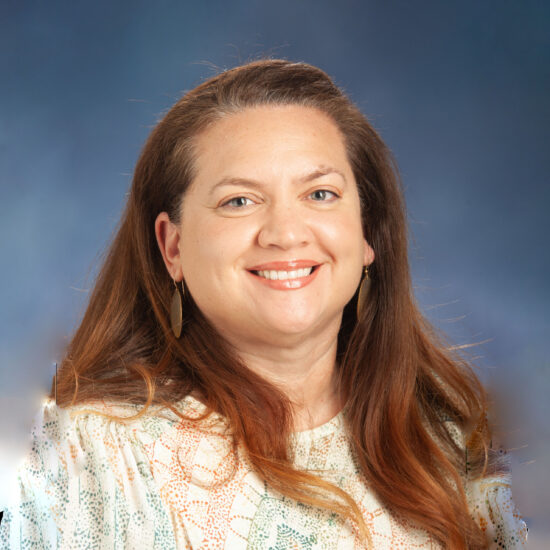The world is a wonderful place, explore it with passion.
Johanna Delgado-Acevedo, Ph.D. Associate Professor
- Faculty

Johanna grew up in Adjuntas, a small town in the mountains of central Puerto Rico where natural beauty abounds. With this natural beauty comes natural resources that need to be protected and preserved. Johanna became an advocate for conservation and environmental protection as a teenager. This passion for the environment has shaped her education and career.
Today, she is an associate professor in our wildlife and conservation program at A&M-Commerce where she loves mentoring her students and guiding them as they find their niche in the wide world of wildlife and conservation.
A Conservation With Dr. Delgado-Acevedo
What would you tell a student who is thinking about attending A&M-Commerce?
“Welcome to our university. I want you to feel you are part of the university. We, faculty and staff, will support you and will guide you through your time at A&M-Commerce. We do not have a lot of women in wildlife field and even fewer Latinas, so I am one of their strongest advocates.”
What draws you to your discipline?
“Although I was not an outdoor person growing up, I was an advocate for ecological and natural resources conservation. I became involved with a community-based organization known as Casa Pueblo that fought against multinational companies that wanted to developed open-pit mining in Puerto Rico. I was fifteen-years-old at the time and have continued my involvement ever since.”
What has been your favorite course to teach?
“I have two. One course is environmental justice. When I teach this class, I am able to educate my students about the importance of civic involvement and how to make a difference. For example, pollution is not equally distributed around the world. Some groups are more affected by pollution than others. I help my students learn about solutions that address these inequalities and help these populations have a better environment with less pollution. Another favorite course is when I take students abroad to Puerto Rico, my home. This course is important to me because I love ecological agriculture. I work with my students as they learn about alternatives to traditional agricultural practices. We also explore agroecological principles as we engage in hands-on experiences.”
Tell us about a project on which your students are currently working.
“My students and I are busy. One student is researching restoration of Blackland prairies focusing on how the use of herbicides, fire and native species can restore native prairies. Another student is researching freshwater turtle communities in Northeast Texas. A third student is developing a population model for the number of cottonmouth snakes in our wetland areas. The goal is to use this population model to predict population density of other pit vipers that might be endangered. A fourth student wants to see if there is any effect of urban areas on frogs and toads. He will study changes in frog community composition along an urban gradient (from Dallas to Cooper). Also, we are studying the use of camera-traps to study herpetofauna in constructed wetland systems. In addition, we have two wild pig projects, the first is using fencing and decoys as deterrents for wild pigs in agricultural land; the second is using Unmanned Aerial Vehicles to study the impact of wild pigs in agricultural land. Lastly, we are working on describing bat communities in Northeast Texas, the presence of rattlesnake-master borer in Northeast Texas and diet and food availability for frogs in this region.”
What are a few careers that somebody who studies wildlife might go into, especially for a person who is undecided?
“It depends on whether the student wants to work in education, for a government agency, a non-governmental organization or a private company. I encourage you to attend graduate school to pursue a master’s degree or a PhD. You are better prepared in whatever area you choose by the time you graduate. There are many jobs in the Texas Parks and Wildlife Department if you are interested in staying in the area. At the federal level, you might consider an agency like the Environmental Protection Agency (EPA), the Forrest Service and Fish and Wildlife Services. There are also many non-governmental and nonprofit organizations that might be a better fit for you such as the Nature Conservancy or private companies doing land restoration or habitat inventories. Other important careers are research and education, specifically ecological education in museums, zoos and other organizations.”
Can you tell me a bit about your Involvement in the Latina faculty and staff association?
“I'm excited to be part of this association and am the board's secretary. We have a lot of plans for our students, faculty and staff. Everyone knows that we exist, that we have a strong presence in the university and that we do a lot for the university. My goals are to concentrate on Latinas in science and to continue my work with our members in all the initiatives.”
Educational Background
- Ph.D., Wildlife Sciences and Landscape Genetics, Texas A&M University-Kingsville, Caesar Kleberg Wildlife Research Institute 2010
- M.S., Tropical Biology, University of Puerto Rico-Río Piedras, 2005
- B.S., University of Puerto Rico-Cayey
Academic Positions
- Associate Professor, Texas A&M University-Commerce, 2020-present,
- Assistant Professor, Texas A&M University-Commerce, 2014-2019
- Research Coordinator, Pontifical Catholic University of Puerto Rico and Rico and Casa Pueblo de Adjuntas, 2012-2014
- Visiting Assistant Professor, Sul Ross State University, 2012
- Postdoctoral Fellow, University of Hawaii-Manoa, 2011
- Director, Botanical Gardens of the University of Puerto Rico, 2009-2011


